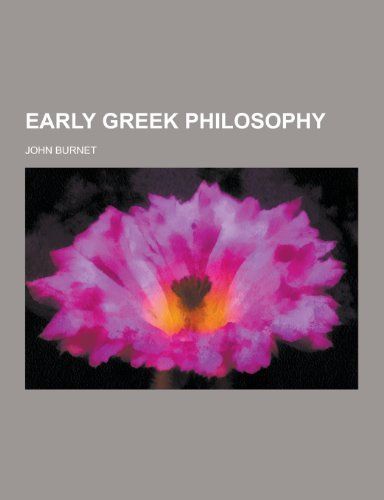
Early Greek Philosophy
This historic book may have numerous typos and missing text. Purchasers can usually download a free scanned copy of the original book (without typos) from the publisher. Not indexed. Not illustrated. 1892 edition. Excerpt: ... CHAPTER V. EMPEDOKLES OF AKKAGAS. 80. The belief that all things must be fundamentally pi uralism. one thing, was common to all the philosophers we have ( hitherto studied. The earliest had held that the different substances which we perceive in the world were all mere passing forms of some one underlying substance, be it Water, or Air, or Fire, or something which is none of these. But now Parmenides has shown that, if we are serious in holding that this one substance really is, we must make up our minds to abandon the idea that it can take different forms. The senses, which present toj us a world of change and multiplicity, are deceitful. Prom this conclusion there was no escape; the time was still to come when philosophers would seek the unity of the world in something which, from its very nature, the senses could never perceive. It is true, no doubt, that the One of Parmenides is not, as a matter of fact, so perceived; but that is altogether the fault of the senses. We have not yet got to the stage where it is possible to regard the same world as one for thought though many for sense. The One, it still seemed, could not co-exist! with the Many. We find, accordingly, that from the time of Parmenides to that of Plato, all thinkers in whose hands philosophy made any real progress abandoned the monistic hypothesis. Those who still held by it for the most part adopted a purely critical attitude, and confined themselves to a dialectical defence of the theory of Parmenides against the new views. Some taught the doctrine of Herakleitos in an exaggerated form; some continued to expound the systems of the early Milesians. This, of course, showed a want of true insight into the problem; hut even those philosophers who saw that Parmenides could...